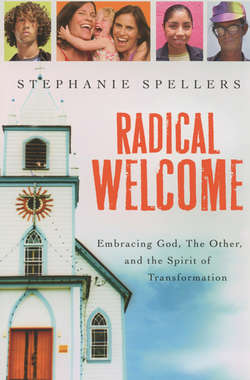Читать книгу Radical Welcome - Stephanie Spellers - Страница 19
На сайте Литреса книга снята с продажи.
GO DEEPER . . .
Оглавление1. Which of the stories, quotes or ideas you just read was the most challenging? Exciting? How do they connect with your own story? With your congregation’s story? What do you feel inspired to ask or to do now?
2. What part of the dream of radical welcome sparks passion in you? Recall a specific story from your life that explains why you have that passion or concern.
3. What words come to mind when you think of “welcome”? What words come to mind when you think of “radical”? How do those associations help or hinder as you consider radical welcome?
4. When have you been radically welcomed? When have you walked into a place and found yourself completely appreciated and valued and included, despite your expectations? Reflect on that experience.
5. When have you felt left out? When have you entered a space only to discover no room for your voice or your identity? Reflect on that experience.
1. I appreciate Sheryl Kujawa-Holbrook’s definition of power in her work on multiracial communities; she describes it as “the capacity to have control, authority or influence over others. [In particular] social power refers to the capacity of the dominant culture to have control, authority and influence over” oppressed peoples. She concludes, “social power plus prejudice equals oppression.” See A House of Prayer for All Peoples: Building Multiracial Community (Bethesda, MD: Alban Institute, 2004), 15.
2. Miroslav Volf, Exclusion and Embrace: A Theological Exploration of Identity, Otherness and Reconciliation (Nashville: Abingdon, 1996), 140–45.
3. Volf’s use of the phrase the other here indicates the individual one who is not the self. It is not necessarily the outcast or oppressed other, as when I use the term. I have marked the difference by capitalizing the term (“The Other”) when it refers to those who are part of oppressed or marginalized groups.
4. Ibid., 142.
5. Ibid., 143.
6. Ibid., 145.
7. Homan and Pratt, Radical Hospitality: Benedict’s Way of Love (Orleans, MA: Paraclete Press, 2004), 36.
8. Valerie Batts, Modern Racism: New Melody for the Same Old Tunes (Cambridge, MA: Episcopal Divinity School Occasional Papers, 1998).
9. A term made popular by priest and consultant Eric Law, whose works are featured in the bibliography.
